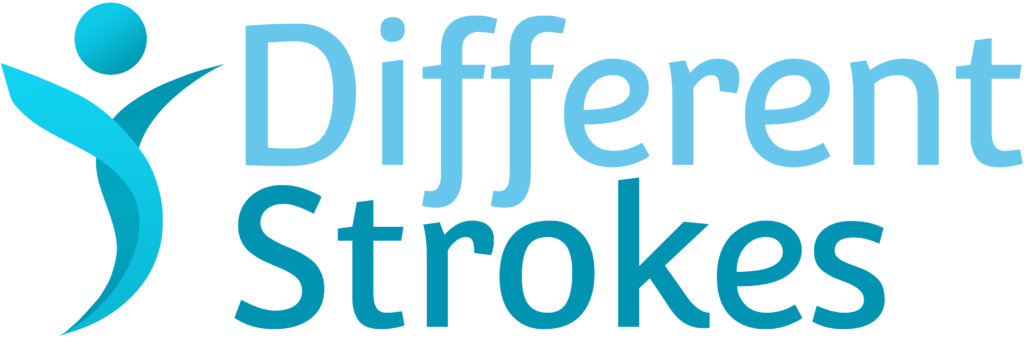
Lauren’s Story
- Lauren Hartney


“I had my stroke in September 2012 when I was just 20 and due to be returning to university a few weeks later. It started very slowly and all I remember was having a horrendous one-sided headache and was occasionally sick when I stood up. My mum is a nurse and was concerned but over the course of 5 days I was sent home from A&E twice, being told it was just a migraine and it would get better with rest.
On my third visit to the hospital (6 days after the onset of headache) a junior doctor noticed a very slight left-sided weakness so they eventually decided to do a CT scan. The first scan highlighted a bleed on my brain and I was admitted for observation.
The following day I woke up in the afternoon to have ongoing and regular neuro observations and I was terrified to realise that I was completely unable to feel or move my left side from my neck down.! The next few hours were a bit of a blur, but I was rushed for more scans and was blue lighted from my local hospital to St Georges in London and the on call consultant was asked to come and review me. It was here where it was found that I had a cerebral venous sinus thrombosis, a clot in my jugular vein and a large associated haemorrhage. It was suddenly a lot more serious than was first thought and my mum had to make the awful decision of what treatment I was to have. Along with the doctors it was decided to thin my blood to try and disperse the clots but there was a risk that it could make the bleed worse, which could have been potentially fatal. Over the next few days I started to realise more of what was going on but still was completely paralysed down that one side. I was told to expect the fact that I probably wouldn’t walk again and would have to undergo a very intense rehabilitation.
 Recovery was one of the hardest things I have ever done both physically and mentally. I kept a diary of my progress which allowed me to look back to where I started if I was feeling down or had a bad day with no improvements. I was transferred back to my local hospital and subsequently to a neuro rehabilitation centre where the hard work was to begin. I had physiotherapy at least once a day and other sessions included occupational therapy and psychology, which boosted my motivation and determination. The hardest part was seeing all my friends go back to university and carry on with their lives when I wasn’t able to do much for myself at all and was relying on other people constantly.
Recovery was one of the hardest things I have ever done both physically and mentally. I kept a diary of my progress which allowed me to look back to where I started if I was feeling down or had a bad day with no improvements. I was transferred back to my local hospital and subsequently to a neuro rehabilitation centre where the hard work was to begin. I had physiotherapy at least once a day and other sessions included occupational therapy and psychology, which boosted my motivation and determination. The hardest part was seeing all my friends go back to university and carry on with their lives when I wasn’t able to do much for myself at all and was relying on other people constantly.
However, despite being told my progress was likely to be minimal I left the rehabilitation unit walking just 4 months after my stroke. Recovery continued over the months but as soon as I started walking I signed myself up to do a 10km run just 9 months after my stroke. At the time I didn’t care whether I would walk the whole thing or even crawl over the finish line, but it gave me the determination and drive that I needed. They haven’t come to an exact conclusion of my stroke but a few months after I was diagnosed with Behcets disease which is a very rare autoimmune disease which causes inflammation of blood vessels. This is what they think caused my stroke. Behcets has left me dealing with daily pain, fatigue and joint inflammation but now that I am on more medication it is stable….for now. When it flares up it exacerbates my left sided weakness and there are times when I have to still use a wheelchair or crutches.
Different strokes helped me a lot during my stroke and recovery and I started following through Facebook. I got to speak to other people who had gone through similar experiences and it was amazing to not know that we are alone. About a year after my stroke I was contacted by someone who asked me if I would come and visit her daughter who was in hospital having had a stroke. I was uncertain how I would feel if I went but I am so glad that I did. It was giving back what Different Strokes had given me only a year before and I was able to give that person some hope that recovery, despite being tough, is possible.
 Now, 5 years on, my life couldn’t be any more different. I started back at university in September 2017 and am a student paramedic. I worked as an ambulance technician for a few years before and feel that my experiences will make me a better paramedic as I know what it feels like to be a patient and not having any idea what is happening. I am hoping to graduate in 2020 but know that with my health I may have to take slightly longer. It is challenging every single day with my health and fatigue, but this only makes me more determined as being a paramedic is my dream. I know that realistically I won’t be able to work frontline for the rest of my life but even if I can only do it for a few years then I hope that in that time I can help and inspire as many people as I can.
Now, 5 years on, my life couldn’t be any more different. I started back at university in September 2017 and am a student paramedic. I worked as an ambulance technician for a few years before and feel that my experiences will make me a better paramedic as I know what it feels like to be a patient and not having any idea what is happening. I am hoping to graduate in 2020 but know that with my health I may have to take slightly longer. It is challenging every single day with my health and fatigue, but this only makes me more determined as being a paramedic is my dream. I know that realistically I won’t be able to work frontline for the rest of my life but even if I can only do it for a few years then I hope that in that time I can help and inspire as many people as I can.
The one piece of advice I would give to someone is not to give up and to use the support of anyone who is offering it to you. It is easy to look back and see what you used to have or be able to do but unfortunately you can’t change the past. Having a stroke at any age is horrendous but through it you will become a stronger and more resilient person.”
Your donation helps others like Lauren on their journey
There are 100,000 strokes in the UK each year with 1 in 4 happening to somebody of working age or younger. Different Strokes aims to promote independent stroke recovery and help these younger stroke survivors reclaim their lives.


Webinar: Dealing with Post-Stroke Fatigue
A large number of stroke survivors have to learn to cope with Neuro fatigue following their stroke. A panel of 3 stroke survivors will tell us about their experiences coping with fatigue. They will explain what can or could trigger their fatigue and how they personally deal with it day to day.

Join Us This September for Our Events – Life After Stroke: Identity, Experience and Insight
We’re excited to announce the return of our in-person stroke community events this autumn and this year, we’re focusing on three words that matter deeply to stroke survivors: identity, experience and insight.

Professor Pankaj Sharma Awarded OBE in King’s Birthday Honours 2025
We are delighted to share the news that Professor Pankaj Sharma who has served as a medical advisor to Different Strokes for many years has been awarded an OBE in the King’s Birthday Honours 2025.

Webinar: How to Identify Red Flags in the Prevention and Treatment of Stroke
Join us on 2nd July in this FREE webinar and Q&A, led by Laura Barlow of Bolt Burdon Kemp.

Richard Djan-Krofa Wins the 2025 Different Strokes Outstanding Contribution Award
We are delighted to announce that Richard Djan-Krofa has been awarded the 2025 Different Strokes Outstanding Contribution Award. This annual honour recognises a volunteer who has gone above and beyond in their service to the charity and wider stroke community. With more than 15 years of committed service, Richard is a truly deserving recipient.








